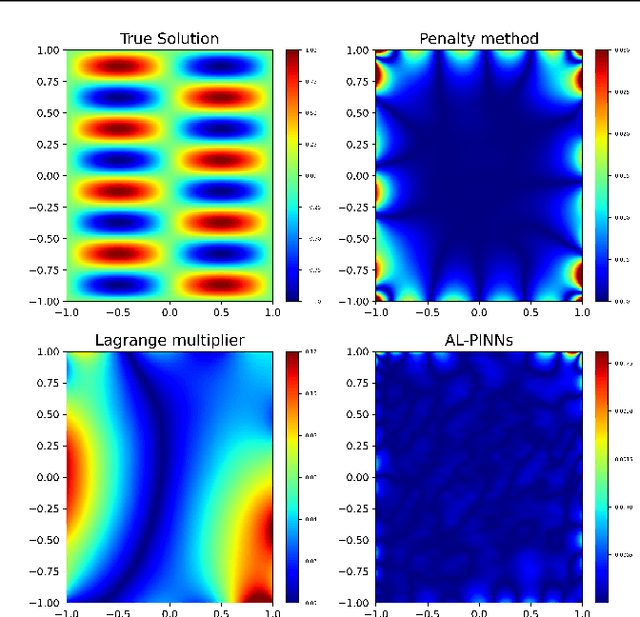AL-PINNs: Augmented Lagrangian relaxation method for Physics-Informed Neural Networks
Paper and Code
Apr 29, 2022



Physics-Informed Neural Networks (PINNs) has become a prominent application of deep learning in scientific computation, as it is a powerful approximator of solutions to nonlinear partial differential equations (PDEs). There have been numerous attempts to facilitate the training process of PINNs by adjusting the weight of each component of the loss function, called adaptive loss balancing algorithms. In this paper, we propose an Augmented Lagrangian relaxation method for PINNs (AL-PINNs). We treat the initial and boundary conditions as constraints for the optimization problem of the PDE residual. By employing Augmented Lagrangian relaxation, the constrained optimization problem becomes a sequential max-min problem so that the learnable parameters $\lambda$'s adaptively balance each loss component. Our theoretical analysis reveals that the sequence of minimizers of the proposed loss functions converges to an actual solution for the Helmholtz, viscous Burgers, and Klein--Gordon equations. We demonstrate through various numerical experiments that AL-PINNs yields a much smaller relative error compared with that of state-of-the-art adaptive loss balancing algorithms.
 Add to Chrome
Add to Chrome Add to Firefox
Add to Firefox Add to Edge
Add to Edge